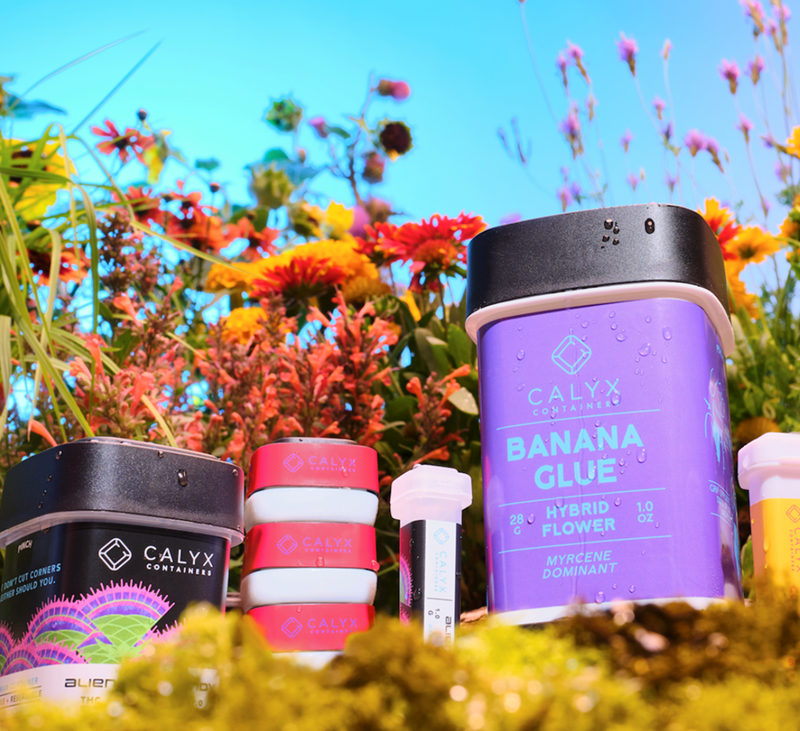
Why We Prioritize Recyclability: Leveraging Material Science to Protect Our Planet
Discover why Calyx Containers prioritizes 100% Recyclable Virgin and Post-Consumer Recycled Polypropylene over alternative sustainable materials for cannabis packaging. From superior barrier properties to accessible waste management, Calyx's commitment to sustainability offers practical solutions for environmentally-conscious brands.
Why We Prioritize Recyclability: Leveraging Material Science to Protect Our Planet
Stay in touch!
Join our email list to receive Calyx content & product updates.
By Calyx Containers in Cannabis Packaging
Quick Hits
- Calyx chooses 100% Recyclable Virgin Plastics and Post-Consumer Recycled Polypropylene over alternative materials due to their superior barrier properties and accessible waste management infrastructures.
- 72% of U.S. consumers have access to curbside recycling programs that accept Polypropylene packaging, compared with 11% who can access composting programs for packaging.
- Compostable Materials, Ocean Plastics, Biocellulose Water-Soluble Materials, and Plant-Based Biodegradable Packaging represent admirable efforts to reduce packaging waste, but we don’t feel they’re well suited to sensitive cannabis products.
- Post-Consumer Recycled Plastics offer promising avenues to leverage accessible recycling infrastructures while building towards a circular economy.
Committing to Recyclable Cannabis Packaging
The product design and packaging choices we make today reverberate into the near and far future.
At Calyx, we deeply consider the repercussions of our decisions. In our product development process, we rigorously assess various packaging materials and end-of-life pathways. Through this ongoing exploration, we’ve prioritized recyclable Virgin and Post-Consumer Recycled Polypropylene plastics, and for good reason.
These materials offer superior barrier properties and can be easily and sustainably disposed of at their end of life, aligning with our commitment to product preservation and a circular economy.
The same can’t be said of alternative sustainable materials, and we’re here to tell you why. Join us as we explore the pros and cons of alternative sustainable packaging options and learn why Calyx prioritizes recyclable Virgin and PCR plastics.
Protective Packaging is Sustainable Packaging
For every metric ton of cannabis produced, the modern cannabis industry emits nearly 3,000 metric tons of carbon. That means every ounce of flower produced emits around 85 kg of carbon, not to mention the impact of additional processing steps needed to produce edibles, tinctures, and concentrates. Calyx chooses packaging materials with superior preservation qualities to ensure that all that energy doesn’t go to waste in the form of product degradation or spoilage.
Recyclable Means Accessible
Calyx's emphasis on recyclable packaging options offers an accessible and efficient approach to waste management, ensuring that your products have the highest chance of being disposed of sustainably when compared to alternatives. While the U.S.’s consumer level recycling infrastructure has room for improvement, 72% of U.S. consumers do have access to curbside recycling programs that accept Polypropylene packaging. The same can’t be said for alternative end of life pathways like composting. If a consumer doesn’t have access to these waste management methods, their package effectively ends up in a landfill.
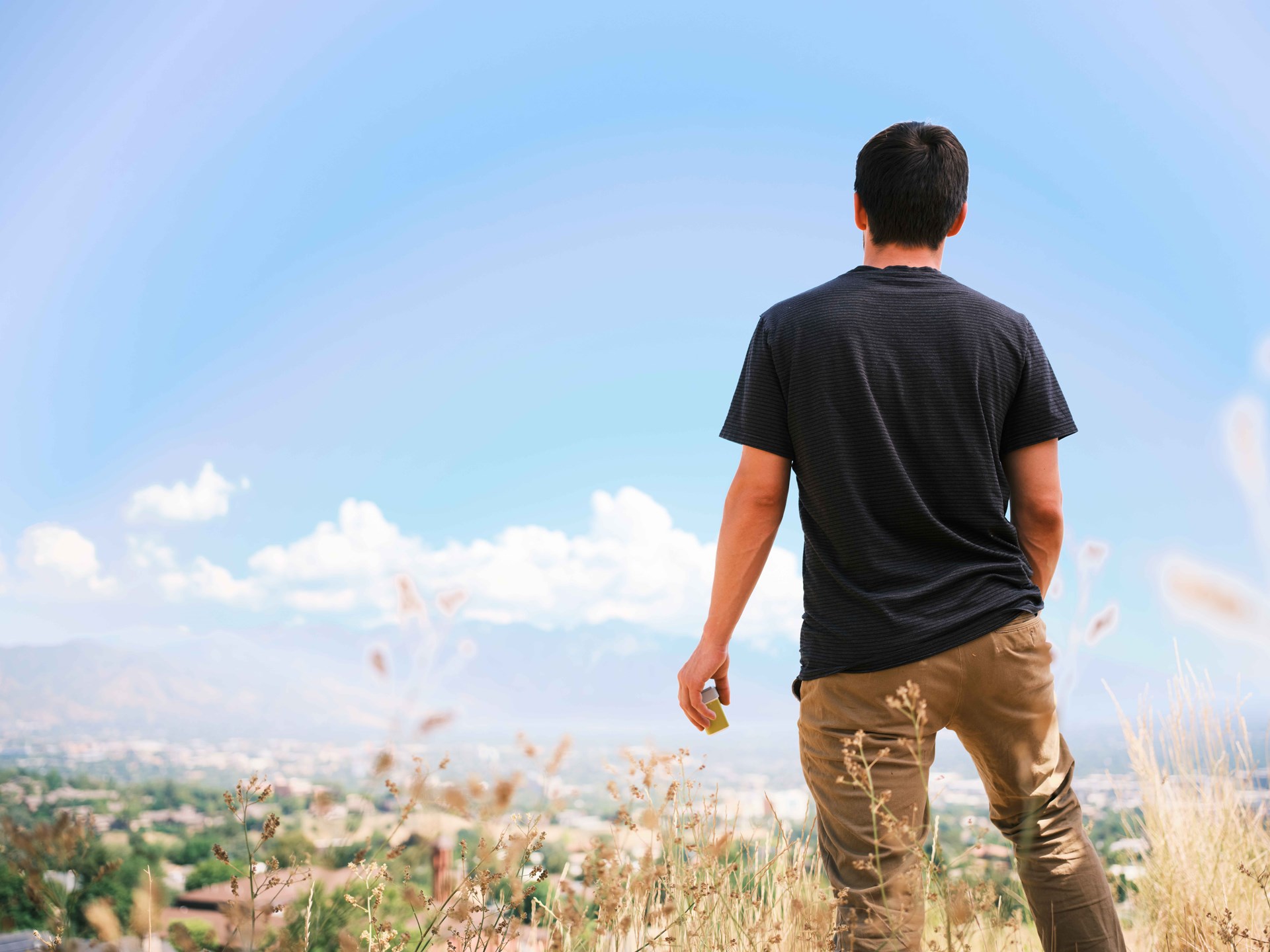
Evaluating Alternatives: A Comparative Analysis of Sustainable Cannabis Packaging
In the realm of sustainable packaging technologies, every option presents unique advantages and challenges for your brand to consider when striving for eco-conscious solutions.
We Love Repurposed Ocean Plastics, But Not For Cannabis Products
Efforts to repurpose the massive amount of plastic waste floating in our oceans demonstrate a commendable commitment to environmental stewardship. However, our research has shown that Ocean Plastics simply don’t provide the level of safety or performance needed to preserve sensitive cannabis products.
Inconsistent Source, Inconsistent Performance
Ocean Plastics come from highly variable sources, which are ground together to create as consistent a product as possible. This inconsistency in sourcing can result in variations in barrier properties and mechanical stability.
- Ocean Plastics’ barrier properties—the ability to prevent the passage of gasses, liquids, and odors—can vary significantly. This variability results in inconsistent permeability, meaning some plastics may allow moisture or air to penetrate more readily than others, posing a risk to the quality and freshness of cannabis products.
- Child-Resistant opening mechanisms like those used in cannabis packaging require mechanical stability–we need to trust that our packaging can reliably bend and bow to accommodate a CR opening mechanism. Sourcing plastics from inconsistent materials doesn't give us the confidence that we can maintain compliance and product performance.
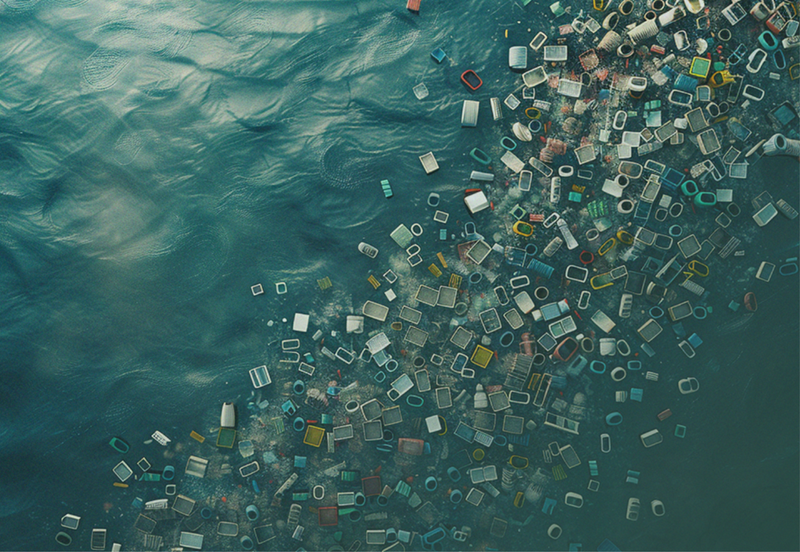
Risk of Contamination
Ocean Plastics are also exposed to the elements, which allows for microbial growth within the water-logged plastic. Even after cleaning and remelting, there's still a risk of microbial contamination due to long exposure. That's a risk we're not comfortable taking or passing along to your consumers, especially when it comes to packaging for products that are ingested or inhaled.
Ocean Plastics have a great use case for items like clothing, shoes, and skateboards–products that don’t require high levels of packaging performance and safety. We admire the efforts to clean up our ocean, but we don’t believe Ocean Plastics are well suited to cannabis packaging.
Ocean Plastics are exposed to the elements, which allows for microbial growth within the water-logged plastic. Even after cleaning and remelting, there's still a risk of microbial contamination due to long exposure. That's a risk we're not comfortable taking or passing along to your consumers, especially when it comes to packaging for products that are ingested or inhaled.
Supply Chain Considerations
It's essential to differentiate between environmental sustainability versus organizational and operational sustainability. While there are trillions of pieces of plastic waste in our oceans, we’ve seen a lack of availability of reclaimed and reprocessed Ocean Plastics that can be used as raw material for new products. We prioritize materials that support a reliable supply chain so that we can be responsive to your needs and produce protective packaging that meets your business’s demand.
At Calyx, we're committed to supporting truly sustainable supply chains. We aim for closed-loop systems, where no additional waste is created, and we can utilize our own waste to feed into our supply chain. This approach is not only more environmentally sustainable but also more energetically efficient and cost-effective for you and your customers. While some alternative materials might seem like a good short-term solution, we're focused on long-term sustainability that meets your needs.
Composting Is Only As Sustainable As It Is Accessible
Compostable packaging solutions offer an appeal to environmentally conscious consumers seeking sustainable alternatives. However, the disposal of these materials often requires specialized composting programs and facilities, limiting their applicability to your customers. Composting’s effectiveness in furthering our shared sustainability goals hinges on the availability of proper composting conditions, which are not readily accessible.
In fact, only 11% of Americans have access to composting programs that accept packaging, compared to the 72% with access to curbside recycling programs that accept Polypropylene packaging like Calyx Drams, Lids, and Tubes. While compostable packaging may seem sustainable at first glance, the reality is that this end-of-life pathway rarely materializes, making Calyx's recyclable materials a far more impactful and accessible choice for sustainability-minded consumers and brands.
Calyx Containers' commitment to recyclable packaging offers a straightforward and practical waste diversion solution that aligns with the most widely accessible waste management infrastructures. Choosing Calyx packaging gives you peace of mind that your efforts at sourcing sustainable packaging are truly environmentally responsible and contribute to a healthier planet for future generations.
While compostable packaging may seem sustainable at first glance, the reality is that this end-of-life pathway rarely materializes, making Calyx's recyclable materials a far more impactful and accessible choice for sustainability-minded consumers and brands.
Biocellulose Water-Soluble Materials May Not Make Sense for Cannabis
When we heard about this cutting-edge packaging material, we were excited to see yet another innovation in the sustainable packaging space. However, much like Ocean Plastics, we don’t believe it has a strong use case in cannabis packaging.
Challenges of Packing High Moisture Products in Water-Sensitive Packaging
Biocellulose Water-Soluble flexible packaging is designed to dissolve in water, leaving behind a liquid solution as opposed to a solid product. The packaging itself is designed to be sensitive to water, which poses a challenge when using it to protect high moisture content products like cannabis flower. Any time the packaging is exposed to water, by design it will begin to degrade. Water-sensitive packaging that’s designed to package a high moisture product wouldn’t provide the barrier properties you need to maintain your brand's reputation for quality and keep your customers happy.
Biocellulose Packaging Blocks Branding Opportunities and Supply Chain Controls
Not only is barrier performance a concern, but Water-Soluble packaging also limits customization and transportation capabilities. The majority of printing inks and embellishments are incompatible with Biocellulose materials, making it difficult to represent and differentiate your brand in the increasingly competitive cannabis industry. And with cannabis descheduling on the horizon, rain, moisture, and heat during longer transportation may result in your packaging degrading before it even hits a retail shelf.
Customizable and highly differentiated cannabis packaging is crucial in competitive markets. Water-Soluble Packaging isn’t compatible with Specialty Inks and Embellishments, limiting the tools your team can leverage to make your brand stand out.
At Calyx Containers, we prioritize products aligned with your quality needs as well as established end-of-life infrastructures, leaving us hesitant about adopting this technology.
Plant-Based and Biodegradable Options are Ideal for Secondary Packaging
The emergence of plant-based and biodegradable packaging materials like hemp plastics and biodegradable papers present eco-friendly alternatives to conventional packaging solutions, although we question their use case for primary packaging formats.
Questionable Barrier Properties and Inconsistent Performance
Plant-Based packaging is likely to absorb moisture, much like Biocellulose Water-Soluble Packaging, making it more permeable than synthetic materials. While it may be suitable for dry products in arid environments and has a strong use case for secondary packaging, it lacks the reliability required for primary packaging.
Moreover, Plant-Based packaging introduces a greater degree of variability due to its non-raw Virgin material composition. Our specialty lies in providing reliable primary packaging, and that's why steer clear of this option for products like our Dram Containers, Tubes, and Lids. Its use cases are limited, especially for our high-precision parts manufacturing, where anything impeding precision can impact our Child-Resistant yet accessible opening mechanism.
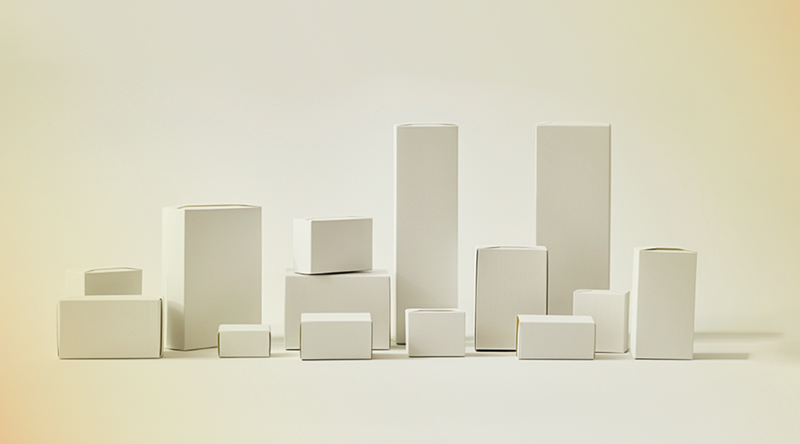
Packaging with Accelerated Degradation Properties May Not Be Recyclable
Calyx Containers previously treated our plastic packaging with an organic additive to accelerate degradation in wet landfill environments. We aimed to ensure our packaging was fully recyclable and environmentally responsible, even if disposed of in the trash by consumers. However, in certain markets, regulatory bodies classified this treated material as non-recyclable.
In our commitment to leveraging accessible end-of-life infrastructures, we've removed this additive from our plastics. Rest assured, Calyx Containers are fully recyclable in every market. This change demonstrates our responsiveness to feedback and commitment to continuously improving our products in line with the latest research and data.
A Balanced Perspective on Virgin Plastics
Like any other packaging material, Virgin Plastics like the #5 Polypropylene utilized in Calyx Containers present both advantages and disadvantages when it comes to sustainability.
Virgin Plastics offer superior barrier properties when compared to Ocean Plastics, Water-Sensitive Packaging, and Plant-Based alternatives, ensuring excellent protection against moisture, oxygen, and contaminants. This high level of protection helps maintain the freshness and quality of sensitive cannabis products over extended periods.
From one perspective, Virgin Plastics can be less environmentally friendly than other options due to their reliance on non-renewable resources and energy-intensive production processes. We feel that #5 Polypropylene’s robust recycling infrastructure and stability in terms of both mechanics and permeability make this material one of the more truly sustainable options available to you and your customers. That being said, the cannabis industry cannot rely on packaging from non-renewable resources forever; that’s why Calyx is continuously innovating along sustainable pathways, like PCR Plastics and zero-waste manufacturing practices.
We feel that #5 Polypropylene’s robust recycling infrastructure and stability in terms of both mechanics and permeability make this material one of the more truly sustainable options available to you and your customers.
Post-Consumer Recycled (PCR) Plastics Feed Closed-Loop Systems
PCR plastics exhibit the same challenges as Ocean Plastics in that they’re sourced from non-virgin raw materials, contributing to inconsistencies in the repurposed materials’ barrier properties and mechanical stability. Despite these challenges, Calyx found a solution that maintains both recyclability and high performance, and aligns with our commitment to a circular economy.
Balancing Product Preservation and Compliance with Sustainability Goals
We’ve made the decision to offer our lids in a 100% Post-Consumer Recycled Polypropylene option. By opting for a uniform material—100% Polypropylene—we've overcome challenges associated with variably sourced materials like Ocean Plastics.
We hold stringent standards for the percentage of Post-Consumer Recycled content in our products, particularly due to the precision required for manufacturing high-performance, Child-Resistant parts. PCR plastics exhibit a slight reduction in barrier properties compared to Virgin materials, so we strategically applied them to the smaller components of our packaging assemblies—the Lids.
The choice to integrate PCR into our Lids was not only due to the smaller size of the component relative to our containers’ bases, but also because of the Lids’ static nature. For example, our Calyx Dram bases need to flex and bow for our novel pinch-and-pull Child-Resistant opening mechanism to function. Placing high levels of PCR content in the base could compromise the mechanical stability of this dynamic component, making the Lid the better option.
Calyx is committed to a circular economy, and we're dedicated to overcoming these challenges to provide you with multiple options for sustainable cannabis packaging, from 100% Recyclable Virgin Polypropylene to 100% Post-Consumer Recycled Polypropylene Lids.
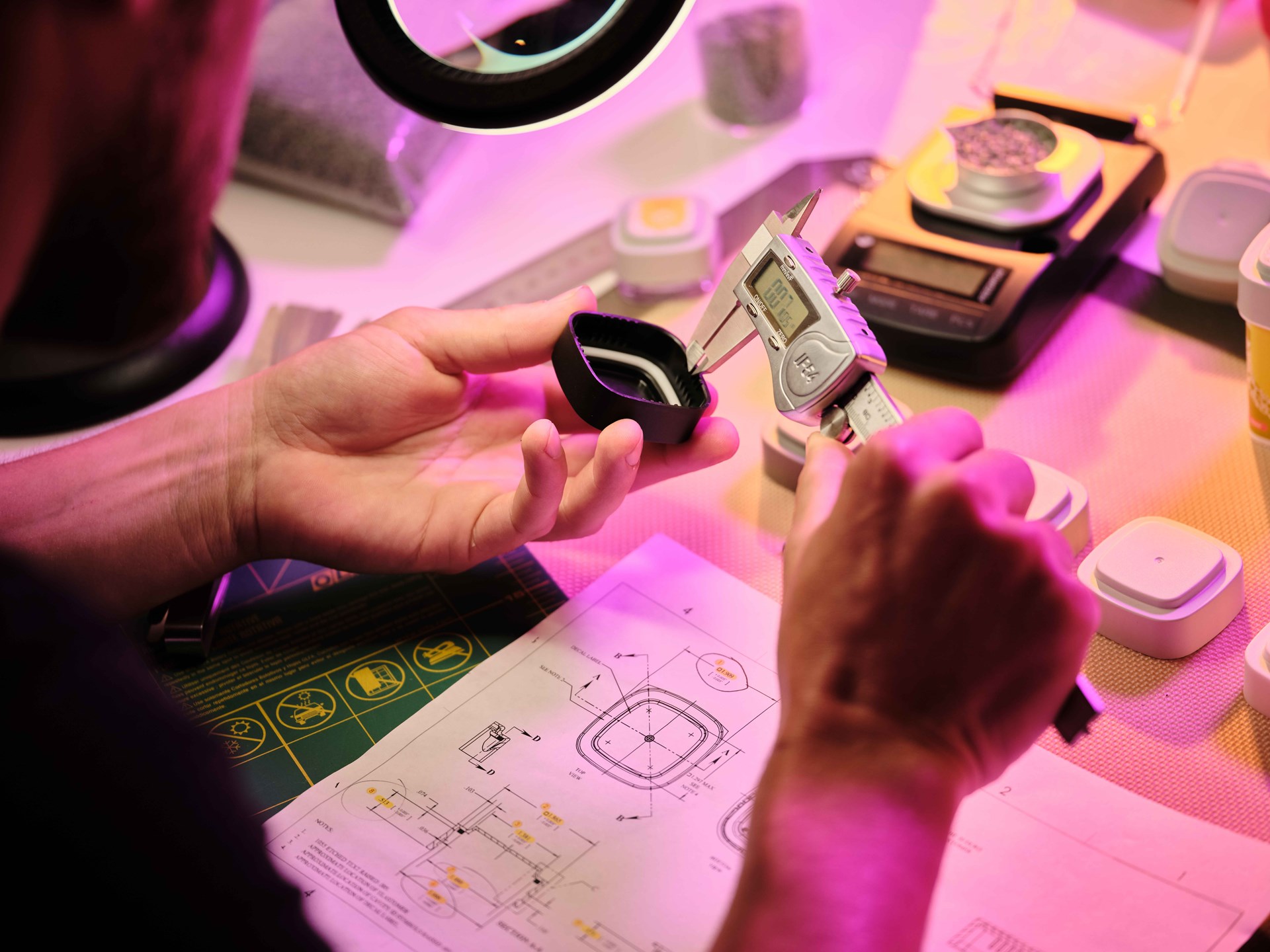
Building Shared Infrastructures for a Circular Economy
There's currently a massive deficit in PCR availability due to inadequate recycling, which is why we're prioritizing recyclability to establish sustainable closed-loop ecosystems. By utilizing PCR plastics, we're creating enterprise-level demand for this material, reflecting our commitment to sustainability and innovation in the industry.
This decision not only supports the recycling stream but also helps build a new supply chain, contributing to a more sustainable industry-wide practice.
By utilizing PCR plastics, we're creating enterprise-level demand for this material, reflecting our commitment to sustainability and innovation in the industry.
Why Recyclability Matters: Leveraging Material Science for a Greener Future
According to the European Environment Agency (EEA), three main pathways can make the production and consumption of plastics more sustainable: smarter use of plastics, increased circularity, and more renewable materials.
Resource Efficiency Through Minimal Material Usage
Calyx Containers' design philosophy revolves around lightweighting: using as little material as possible without compromising product quality or functionality. By optimizing the design of our packaging solutions, Calyx minimizes material waste during production, ensuring that resources are utilized efficiently and sustainably. For instance, we leverage advanced techniques such as hot runner injection molding and Bi-Injection Molding, ensuring our Lids are manufactured with zero waste.
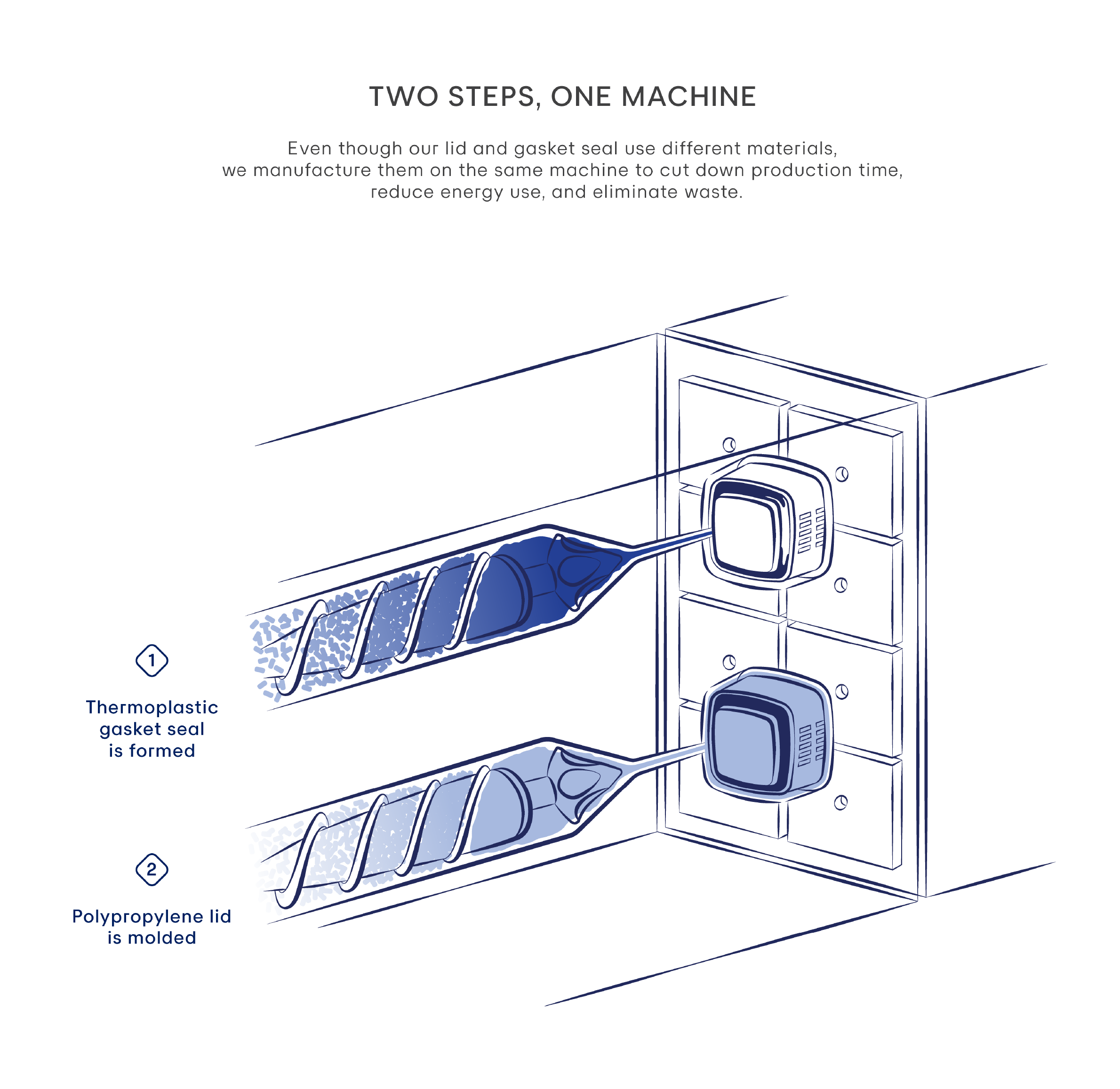
Driving Circular Economy Initiatives
In line with our commitment to recyclability, Calyx Containers actively promotes a circular economy model where materials are recycled and reused to their fullest potential, even before leaving the production facility. All production scrap is meticulously collected, recycled, and reintegrated back into new products, reducing the need for Virgin materials and minimizing environmental impact.
Calyx goes beyond conventional recycling practices by incorporating Post-Consumer Materials back into their products. By utilizing recycled materials in their packaging solutions, Calyx not only reduces waste but also incentivizes suppliers to collect, process, and clean materials for reuse. This proactive approach drives the circular economy forward, encouraging sustainable practices throughout the supply chain.
Embracing Sustainability Through Material Innovation
Calyx Containers embrace plastics by prioritizing mono-material compositions of 100% recyclable materials. By choosing renewable, post-industrial, and post-consumer materials, Calyx ensures that our packaging solutions align with circularity principles and are easy to recycle without the removal of unnecessary foam inserts or cardboards. Just peel off the labels, rinse the interior, and place the capped container in the recycling bin. It’s as easy as 1-2-3!
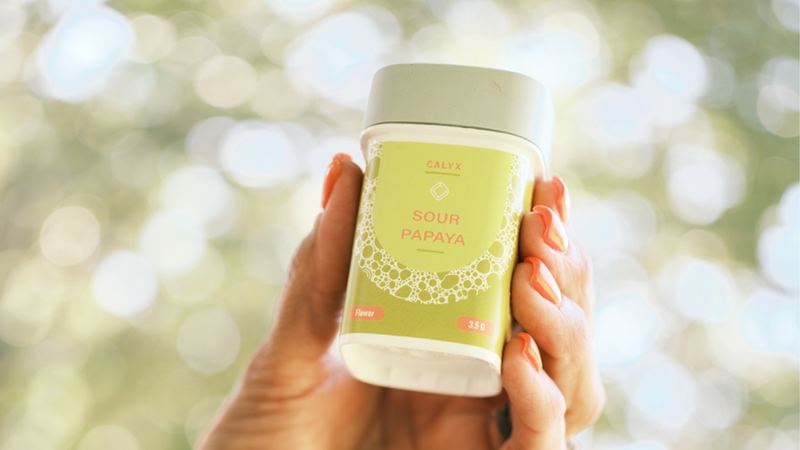
The Calyx Advantage: Sustainability Through Recyclability
Innovative packaging solutions that not only protect the quality of cannabis products but also minimize environmental impact are hard to come by. Calyx Containers' innovative product design strategies, coupled with their unwavering commitment to recyclability and circular economy principles, position them as a leader in sustainable packaging solutions. By prioritizing resource efficiency, waste reduction, and material innovation, Calyx sets a high standard for environmental responsibility in the packaging industry.
